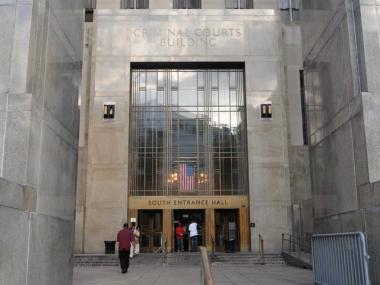Batson Challenge
Batson Challenge
Each side in the trial gets to challenge potential jurors and eliminate them from the pool from which the jury is chosen
What is a Batson Challenge?
A Batson challenge is a challenge made by one party in a case to the other party’s use of peremptory challenges to eliminate potential jurors from the jury on the basis of sex, race, ethnicity, or religion.
A trial usually begins with jury selection. During jury selection, potential jurors are screened by the court and, depending on the particular jurisdiction, by the lawyers, by a question-and-answer session. The screening is designed to find out whether the jurors can be fair and impartial to both sides in the case, or whether they have some bias, prejudice, or are unqualified to serve for another reason.
Each side in the trial gets to challenge potential jurors and eliminate them from the pool from which the jury is chosen.
If a juror tells the court or one of the lawyers that they cannot be fair or impartial, or are otherwise unqualified to serve on a jury, that potential juror can be eliminated, or challenged for cause.
Some common reasons for challenges for cause are:
- The potential juror is not a citizen of the United States
- The potential juror is not a resident of the county or district of the court
- The potential juror is less than eighteen years of age
- In some jurisdictions, the potential juror must not have been convicted of a felony
- The potential juror is unable to understand and communicate in the English language
- The potential juror has a state of mind likely to preclude an impartial verdict
- The potential juror is related to the defendant, the victim or a witness
- The potential juror was or is an adverse party to any such person in a civil or criminal action
- The potential juror has some other relationship that is likely to preclude impartiality
- The potential juror is or was a prior witness in action
- The potential juror has prior jury service on the case
Each side has an unlimited number of challenges for cause.
However, in jury selection each side also gets a limited number of peremptory challenges. A peremptory challenge is an objection to a potential juror for which no reason need be assigned. Each side in the trial has the power to eliminate a potential juror for no reason at all, such as a “hunch” or a bad vibe about the potential juror.
In 1986, the United States Supreme Court ruled in the case of Batson v. Kentucky, 476 U.S. 79, 106 S. Ct. 1712 (1986), that peremptory challenges may NOT be used to discriminate against and eliminate potential jurors on the basis of sex, race, ethnicity, or religion. Doing so violates a criminal defendant’s right to Due Process of Law and Equal Protection under the United States Constitution.
If a criminal defense attorney believes that the prosecutor is exercising, or using, peremptory challenges to discriminate against potential jurors on the basis of sex, race, ethnicity, or religion, the lawyer can object to, or challenge, the use of the peremptory challenges by what is commonly called a Batson challenge, after the Batson case.
Once a Batson challenge is raised by the defense lawyer, the trial court will then conduct a 3- step analysis:
- The defendant or the defense lawyer must make in initial showing (called a prima facie showing) that the prosecutor’s peremptory challenge was based on race or another impermissible ground. If you do not make a sufficiently detailed objection based upon the numbers and qualities or qualifications of the juror or jurors at issue, your challenge will be denied without the prosecutor having to say anything.
- If the court determines that an initial showing was made, then the burden shifts to the prosecutor to tell the court their neutral reasons for challenging each of the potential jurors, not based on race, religion, sex, or ethnicity. To be “neutral” they must be rational and reasonable, not “implausible, silly or superstitious” and exhibit no inherent discriminatory intent.
- If the court determines that a facially neutral reason was provided, then the defense must prove that the proffered reason is pretextual, meaning false or a lie.
If the court improperly denies a Batson challenge, that may be grounds for a reversal of the judgment of conviction on appeal, and could result in a new trial.
If the court grants a Batson challenge, then it must seat the potential juror who was excluded by the prosecutor on the jury.
